
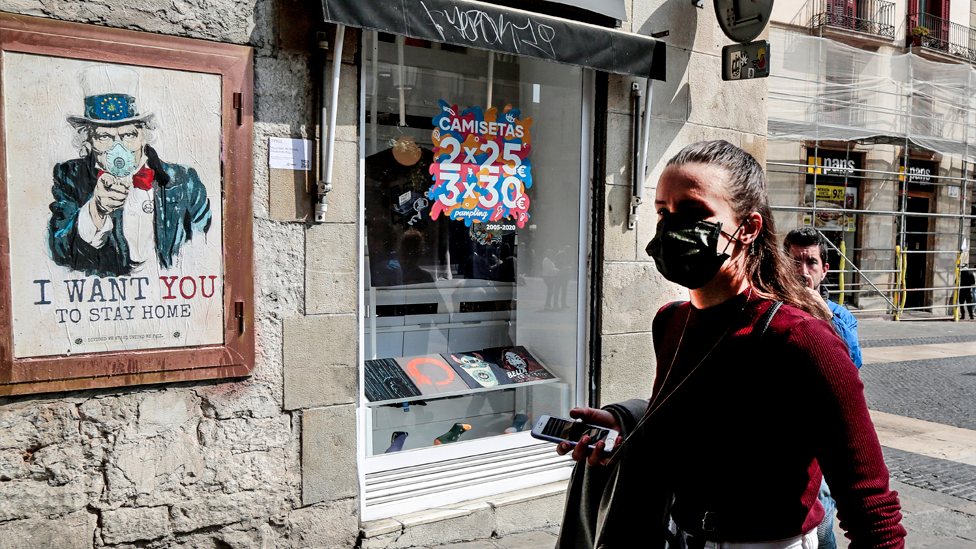
Measures to deal with coronavirus outbreaks are being introduced across Europe.
Many involve the reintroduction of restrictions which had been eased after initial lockdowns.
France: Paris to shut bars
All bars in Paris will shut from 6 October for two weeks.
But restaurants and bars which serve food can stay open until 22:00. They will, however, have to put in place new sanitary measures and register customer contact details.
University lecture halls in the capital must be no more than half full, and working from home has to be prioritised.
Last week bars and restaurants in 11 cities, including Paris, were ordered to close at 22:00. In Marseille, they were shut completely for 15 days.
Across France, gatherings are limited to 10 people and wedding receptions, students parties and other organised gatherings in hired locations are banned.
Face coverings are compulsory in enclosed public spaces throughout France, while specific areas have introduced additional rules.
In Paris and surrounding areas, face coverings must be worn outdoors by anyone aged 11 and over. Hundreds of other municipalities across France have the same rule, including Toulouse, Nice, Lille and Lyon.
Masks must also be worn in most workplaces.
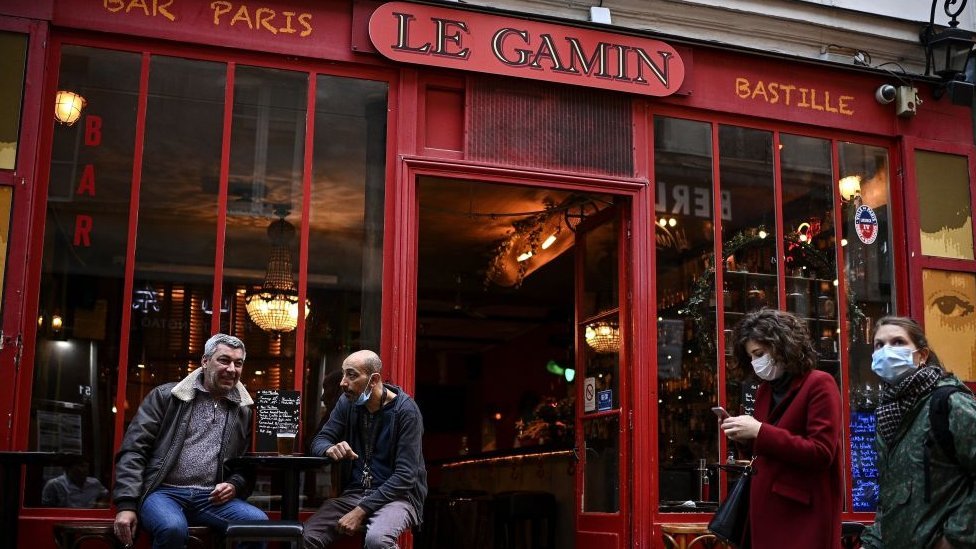
Spain: Madrid back in lockdown
Almost five million people have been affected by a new lockdown in the capital and nine surrounding towns.
People can leave their local area only to go to work, school or for medical care. Indoor and outdoor social gatherings are limited to six people. Bars and restaurants have to shut by 22:00. Along with shops, they have reduced the number of customers entering at any one time.
The measures were imposed by Spain’s central government and resisted by Madrid’s local authorities.
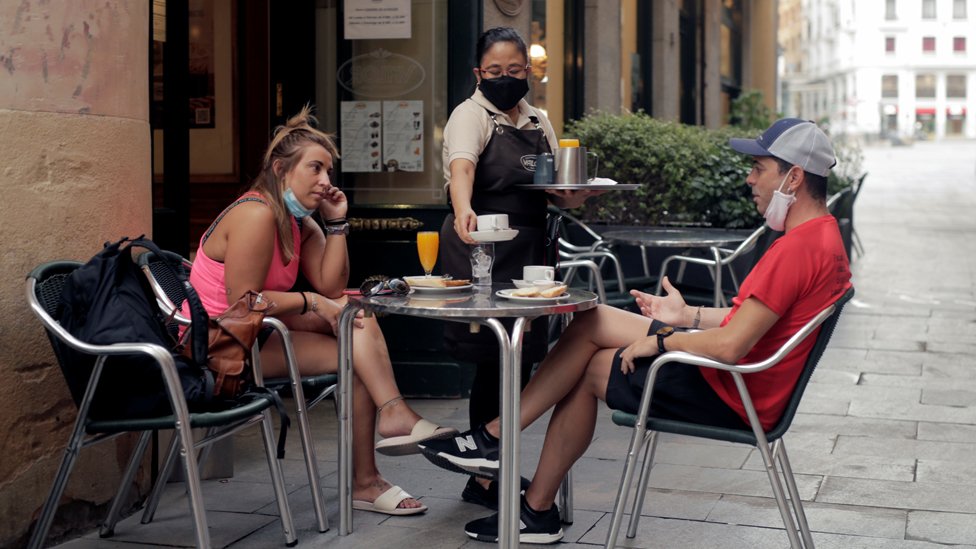
Face masks have to be worn by anyone over the age of six on all forms of public transport and indoor public spaces.
Most regions in Spain have made masks obligatory outdoors as well.
Netherlands: Restrictions in major cities
Dutch authorities introduced new measures from 29 September, after the number of daily infections surged to the highest level since the start of the pandemic.
People are advised to wear a mask in shops in major cities and restaurants and bars have to close by 22:00 across the country.
Businesses must log clients’ contact details and working from home is encouraged. Social gatherings inside people’s homes must not exceed three people. There can be no spectators at sports events.
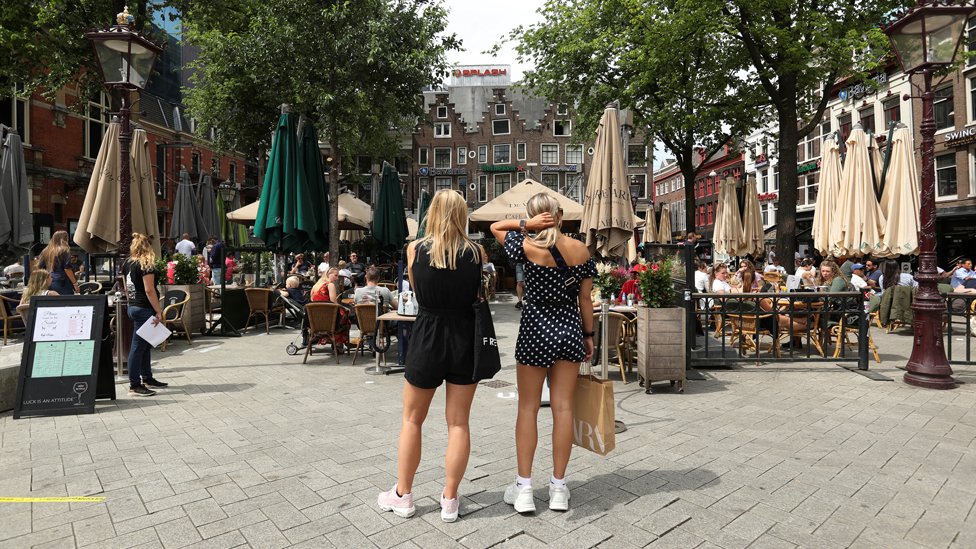
The measures will stay in place for at least three weeks.
Previous measures, such as wearing masks on public transport, will also continue to apply. Local authorities can implement their own additional measures.
Germany: New rules for arrivals from high-risk countries
A ban on large gatherings in Germany – such as public festivals, sporting events with spectators and concerts – has been extended to the end of the year in areas with high infection rates.
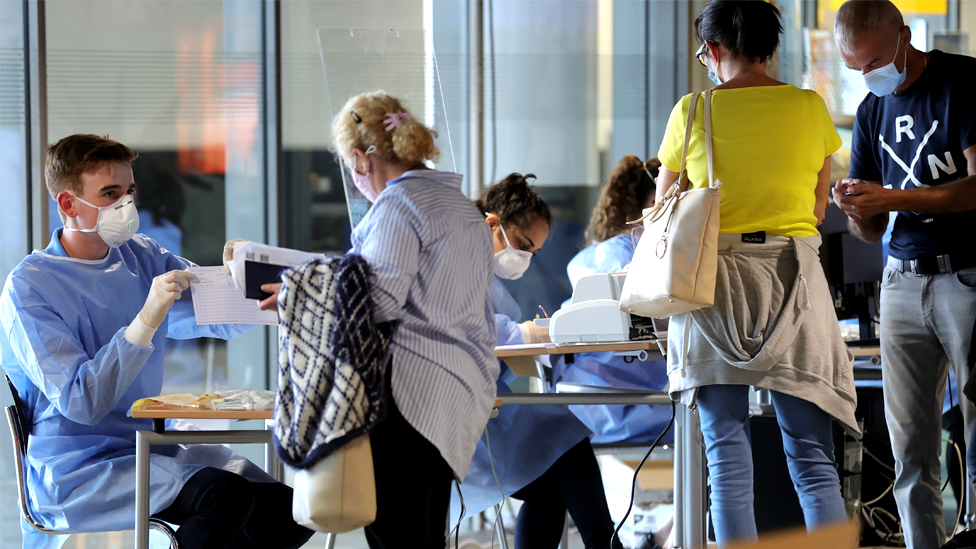
Testing at airports has been compulsory for people arriving from high-risk countries. But from 30 September those travellers have had to self-isolate for 14 days.
People failing to wear face coverings in shops or on public transport face a minimum fine of 50 euros (£46).
German authorities agreed to introduce further measures in regions where the rate of infections is high. Public gatherings will be limited to 50 people and private to 25. People who don’t leave the correct identity information at restaurants and bars will be fined.
In Berlin, which is among the regions with the steepest rise of infections, restaurants and bars will have to close at 23:00 from 10 October. Private parties and gatherings will be limited to 10. Outside and at night only five people or members of two households will be allowed to gather.
Italy: Face masks compulsory outdoors
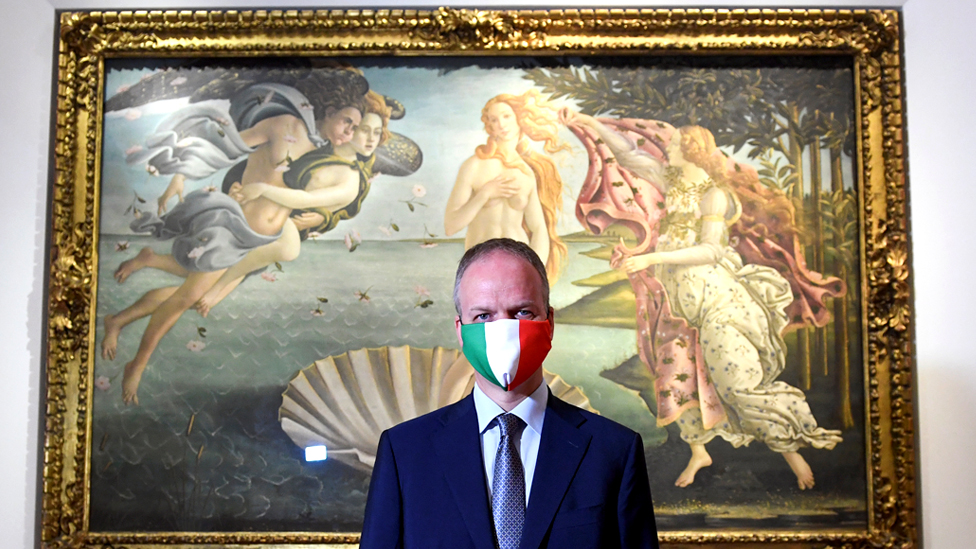
Italy has made it mandatory to wear face masks in outdoor spaces across the country in an attempt to contain the spread of the virus.
Italians must also wear masks indoors everywhere except in private homes.
In schools, face masks are obligatory for all children over the age of six when they move around the school building.
All dance venues and nightclubs have been closed.
Denmark: Bars must close early
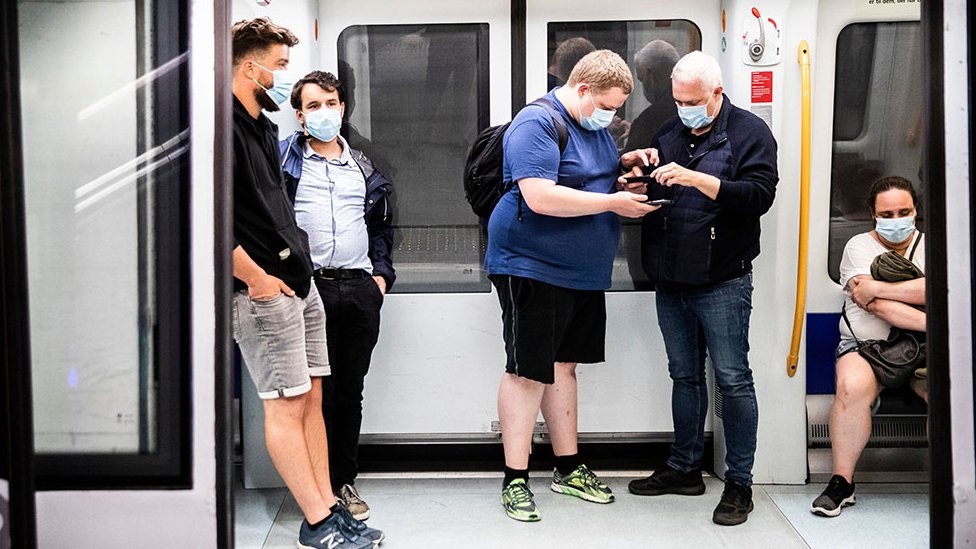
Denmark was one of the first countries in Europe to reopen schools in April.
However, in late August the number of cases began rising sharply.
The government responded by making face masks compulsory on public transport.
In Copenhagen and surrounding areas – which have seen a spike in cases – bars, restaurants and nightclubs must now shut at 22:00.
Private parties, and gatherings such as weddings, must end by the same time and masks must be worn in restaurants, bars and cafes.
Belgium: Football fans return
In the Belgian capital, Brussels, wearing a face mask is no longer compulsory in all public areas, since 1 October.
However, face coverings are still “strongly recommended” in places where a distance of 1.5m cannot be guaranteed.
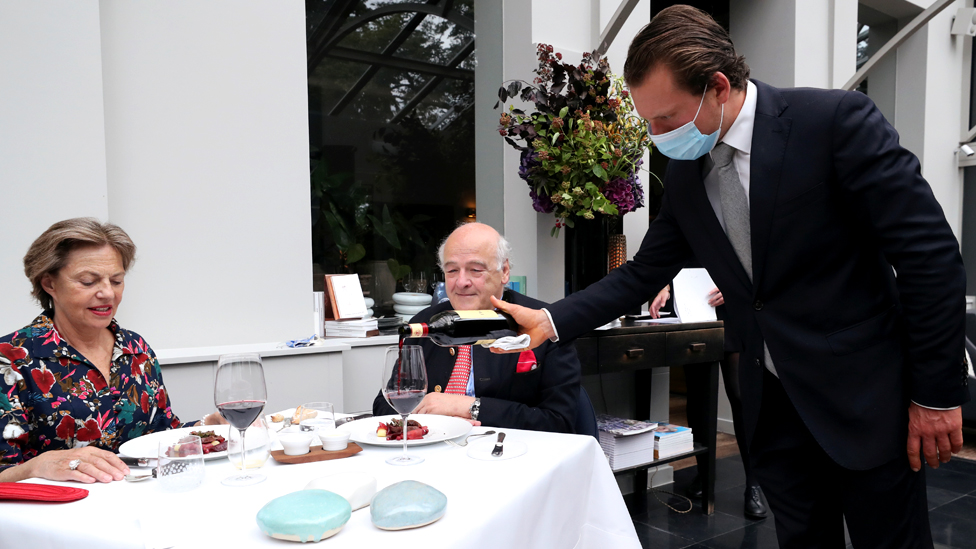
However, other new measures in Brussels were introduced: cafes and bars have to close by 23:00 and other business selling food and drink by 22:00. These measures are now being extended to the rest of the country.
Eating at street markets is prohibited.
A maximum of four people are allowed to gather around the table in a bar and only four people are allowed in a social bubble.
Nightclubs remain closed and no major events, such as festivals, are allowed.
Football fans are being allowed to return to stadiums, but only at a fraction of capacity and they must wear masks.
Portugal: Smaller gatherings
As pupils return to school and some workers return to their offices, new restrictions were put in place from 15 September.
These include the closing of commercial establishments by 23:00 and limiting gatherings to a maximum of 10 people.
Greece: New measures in Athens
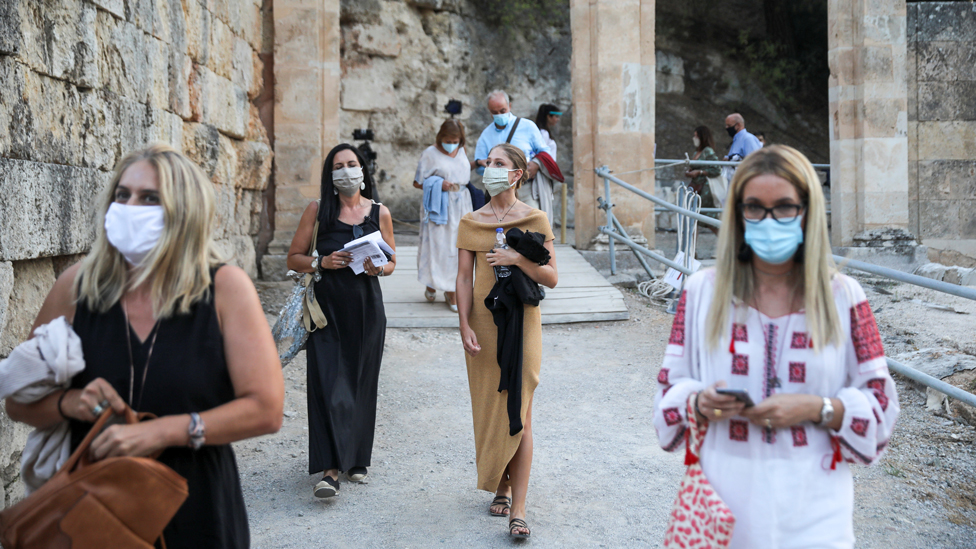
Masks are now compulsory in all public indoor spaces and on all public transport in Greece.
In September, tighter restrictions came into force in the Attica region, which includes Athens: face masks have to be worn at work and in all crowded outdoor places.
There have also been further local restrictions introduced on some of the Greek islands, and free on-the-spot testing has been offered to people arriving on the mainland from those particular islands.
Republic of Ireland: No indoor dining in Dublin
In the capital Dublin, indoor restaurant dining was banned on 19 September for three weeks and all non-essential travel discouraged, after a surge in recent cases.
Social visits to homes in Ireland, both indoors and outdoors, are limited to six visitors from no more than three households.
Outdoor gatherings are limited to 15 people.
Those aged over 70 are again being asked to stay at home as much as possible, and people are being encouraged to work from home if possible.
There have also been a number of local lockdowns.
Sweden: Lockdown measures not imposed
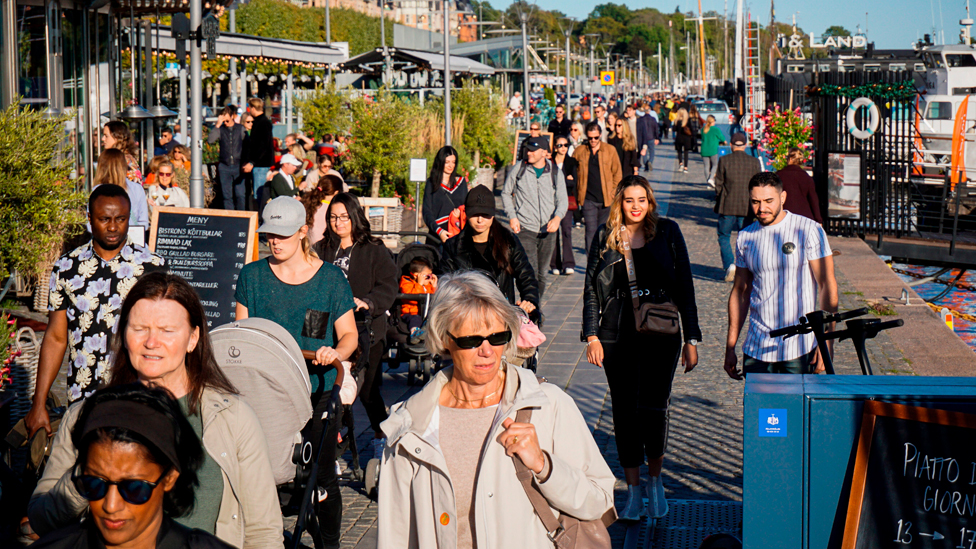
There was no lockdown in Sweden but, in line with government advice, most people respected voluntary social distancing and started working from home where possible.
The country banned gatherings of more than 50 people and urged people over 70 to self-isolate – but shops, bars, restaurant and gyms stayed opened.
The number of new infections is now rising again, but not as sharply as in some other parts of Europe.
Authorities have not ruled out future restrictions, but for now businesses remain open and masks are not recommended.


Comment